“It’s not just about the monsters under the bed, but also the things that keep us up at night.”
According to Blumhouse Television’s president, Jeremy Gold, these words have become a mantra for production, helping the company broaden and evolve as the proliferation of streaming TV services and mainstream interest in dark genre entertainment has grown. The company best known for creepy and clever cinematic takes on horror (Paranormal Activity, Get Out, etc.) has been spreading its wicked wings with a provocative vision that’s taken over our TV screens as of late, with major presence on Hulu, Showtime, Netflix, and just in time time for Halloween 2020, a slate of new films on Amazon.
It’s an exciting, if somewhat ironic, moment for Blumhouse – contending with the public’s very real fears amid pandemic by providing escapist distraction that often taps into the exact kind of dread and distress we’re all feeling right now. Melding the harsh realities of humanity with supernatural and/or sinister new narratives, Blumhouse has cornered the market on eerie entertainment from top-notch writers and directors. But do we actually want to feel fearful at home when a deadly virus looms everytime we venture outside? Apparently, yes. Horror and stories from the darkside happen to be hotter than ever, especially this month, as trick or treating, haunt experiences and seasonal soirees are cancelled across the country. But the company isn’t about to play it safe or churn out predictable paranormal clones now that it has the spotlight.
“For the majority of our fans, Blumhouse is synonymous with horror, but in television we have been able to expand the company’s purview beyond genre and horror with provocative and acclaimed scripted and unscripted series,” shares CEO and founder Jason Blum, who’s become a household name thanks to his talent for recognizing films that thrill and chill audiences. “ A primary goal – with so many broadcast networks, cable networks and streamers buying shows – was to expand our scope beyond genre and horror since there is a much larger appetite for television content and we knew a real opportunity existed.”
Though Blum and company refuse to be pigeon-holed, the brand’s menacing material remains some of its most successful. Films such as Insidious, The Purge, Happy Death Day, Sinister, Truth or Dare, and Unfriended pretty much defined a new wave of contemporary horror, utilizing realism devices such as “found footage” formats popularized by the Activity movies and docu-style direction with touches of black comedy and inventive gore. The brand is also great at marketing (remember those commercials showing freaked audiences walking out of the theater for their films?). Angelenos might even remember when the company opened an interactive haunt experience in Downtown called “Blumhouse of Horrors” several years ago or more recently, its multi-movie themed maze at Universal Studios’ Halloween Horror Nights.
Blum tells L.A. Weekly his personal interest in certain subject matter has led him to seek out more diverse fare, including non-horror, such as he did when he acquired book rights for titles such as The Loudest Voice, The Good Lord Bird and A Wilderness of Error. “The team really took the ball and ran with developing them into excellent television series,” he adds.
Regardless of genre, Blumhouse’s productions maintain a signature feel because they keep many directors in their ecosystem. Filmmakers like Sophia Takal and Gigi Saul Guerrero, who made movies for Hulu’s Into The Dark anthology series, have also crossed over to develop projects with the film company (Takal with the Black Christmas remake and Guerrero on Santa Muerte). Meanwhile, on-screen talent such as Jamie Lee Curtis (who reprised her iconic scream queen role in Blumhouse’s new Halloween films) made a first look deal with Blum across film and television to develop and direct projects.
“It’s great because they know the company, they know our sensibility and they have a really strong point of view to tell the stories they want to tell, and we love that,” Blum explains. “And of course, the company’s horror DNA comes out on television too. It’s a continued branding effort for the company [and] it’s what die hard horror enthusiasts love from us.”
Though Covid-19 has slowed down production pace for Blumhouse, Blum says development at the company hasn’t missed a beat. Gold concurs. “We were fortunate at the beginning that many of our fall releases had completed shooting so it was more about figuring out innovative solutions in the post-process to finish and deliver the shows,” he says. “Later we were able to restart a couple of unscripted projects where crews are small or we could figure out how to film remotely. Most recently, we restarted filming in Los Angeles and New Orleans on a couple of Blumhouse Television projects working within industry, city and our network and distribution partners’ guidelines. “
Gold points to the company’s Fall releases as exemplifying the breadth of what the television studio can do. “For Blumhouse it starts with the material,” Gold adds. “It’s all about the storytellers and what they have to say. We are always looking for the best material to work with, and then to partner with the most creative and talented writers, directors, filmmakers. We’re starting with the incredible brand the film studio built on horror and genre, and expanding the aperture to make shows and streaming movies that entertain a broad audience. “
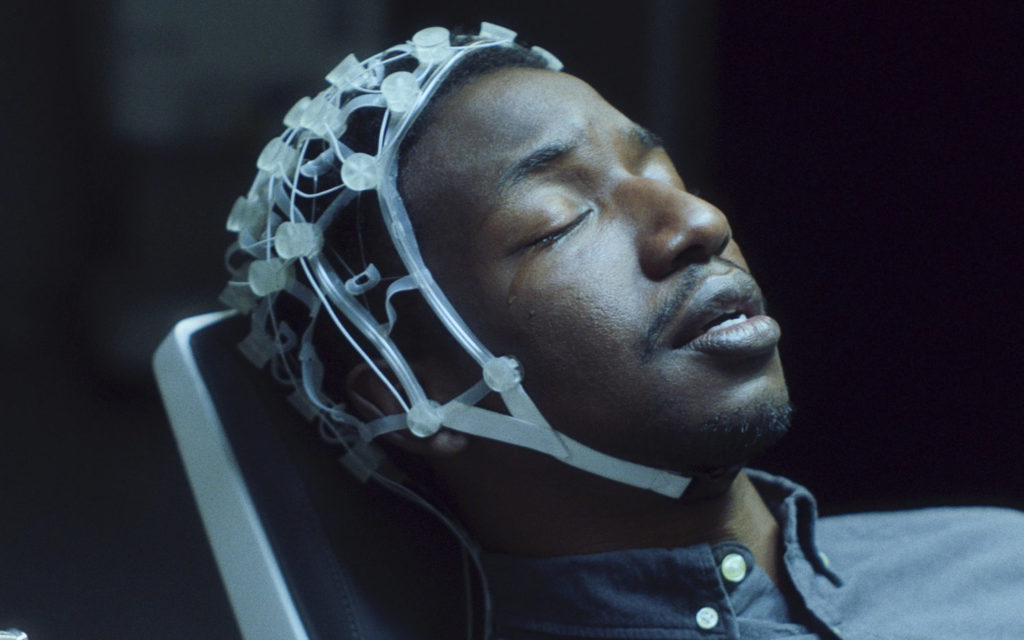
Mamoudou Athie in BLACK BOX (Blumhouse/Amazon)
Check out our guide to Blumhouse’s best TV productions available to stream now:
“Welcome to Blumhouse” (anthology films) / Amazon
Black Box
In his electrifying debut, director Emmanuel Osei-Kuffour utilizes traits from classic science fiction and horror films to explore the baffling power of memory, or lack thereof. Nolan Wright (Mamoudou Athie) is a single father struggling to live a normal life after losing his wife and a good part of his memory in a tragic car accident. Nolan is forced to use post-its to remind himself to perform basic tasks. As things begin to slip in his daily life, Nolan undergoes treatment from an experimental scientist, Dr. Carter (Phylicia Rashad), who uses a form of hypnotherapy called the black box which will help him reclaim lost bits of memory. However, once Nolan submerges into his subconscious mind he encounters visions of a disturbing past he never knew existed. Sometimes suppressed memories are better left untouched. Black Box is a philosophical and horrific ride that redefines the idea of battling your demons. (C.B.)
The Lie
How far would you go to protect your child? This is the question at the heart of Veena Sud’s thriller, The Lie. When Kayla (Joey King) confesses to her parents Jay (Peter Sarsgaard) and Rebecca (Mireille Enos) that she pushed her best friend off a bridge to her death, they’re forced into morally corrupted territory few suburban parents have navigated. The titular “lie” not only refers to the heart of the mystery, but the refusal to see evil within our own homes and families. As Jay and Rebecca start to cover up their daughter’s crime to the local police and even her deceased friend’s father, they begin to disintegrate. And like the best horror and suspense films, The Lie’s narrative is driven by the characters’ needs and desires, not just an extenuating circumstance. Ultimately, The Lie is a tight, cold meditation on how a web of deceit can create its own prison. (C.B.)
Evil Eye
With its traditional use of allegory and metaphor, horror films can sometimes shine a light on social conditions and ailments better than most genres. This definitely is the case in Elan Dassani’s and Rajeev Dassani’s new film Evil Eye, which examines India’s tradition of misogyny. Initially, Usha Khatri (Sarita Choudhury) is over-joyed her daughter Pallavi (Sunita Mani) met a boyfriend in New Orleans, and he’s Indian to boot. However, Pallavi’s new beau Sandeep (a creepy Omar Maskati) reminds Usha of an abusive lover from her own youth in Delhi. Soon, Usha must do whatever is necessary to save her daughter from the ghost of her buried past. Both a family drama and supernatural thriller, Evil Eye delves into such subjects as tradition, the immigrant experience, hidden wounds and the importance of family. (C.B.)
Nocturne
Perfection is a killer, just ask any classical musician. When piano prodigies Juliet (Sydney Sweeney) and her more accomplished twin sister Violet (Madison Iseman) are accepted into the same elite music academy, Juliet’s sense of failure takes on supernatural proportions. After the academy’s best soloist plunges to her death in a mysterious suicide, Juliet discovers her music book, filled with medieval drawings and Satanic musings. Soon, Juliet enters a Faustian contract to overshadow her sister and become the academy’s next chosen one. Director Zu Quirke’s debut is an academic nightmare about pressure, sibling rivalry and the insatiable need to achieve greatness. (C.B.)

Martha Higareda in INTO THE DARK “CULTURE SHOCK” (Blumhouse/Hulu)
“Into the Dark” – Anthology Films (Hulu)
When it hits, Into the Dark represents some of the most inventive and twisted television you can find anywhere, and when it misses, it’s still pretty darn demented and fun. The horror anthology produced for Hulu put Blumhouse on the subscription service map in some ways – even though it had a presence previously – thanks to its consistency and creativity. Premiering in October of 2018 with “The Body” (a wild Halloween episode about a professional hitman who is forced to lug around the plastic-wrapped carcass of his recent victim, pretending it’s a part of his blood-splattered costume as he gets roped into hanging with a group of Halloween revelers) the series staked its claim on weird rompy TV from the start.
Eleven more feature-length episodes later, Into the Dark’s macabre yarns for every month of the year, provided themes and situations centered around holidays that tickled us with terror. When the second season kicked off in 2019, it also seemed to get more inventive with standouts including “Pilgrim,” (for Thanksgiving) “A Nasty Piece of Work” (for Christmas), “Delivered” (for Mother’s Day) and “Good Boy” (for “Pet Appreciation Week”… OK) and “Culture Shock” (for Independence Day)- which just won the Imagen Award for Best TV Movie, recognizing its positive portrayals of Latinos. Whether subtly referenced or the central theme of each film, Into the Dark’s cultural commentary and audacious style made for binge-worthy dramatic bites. (L.L.)
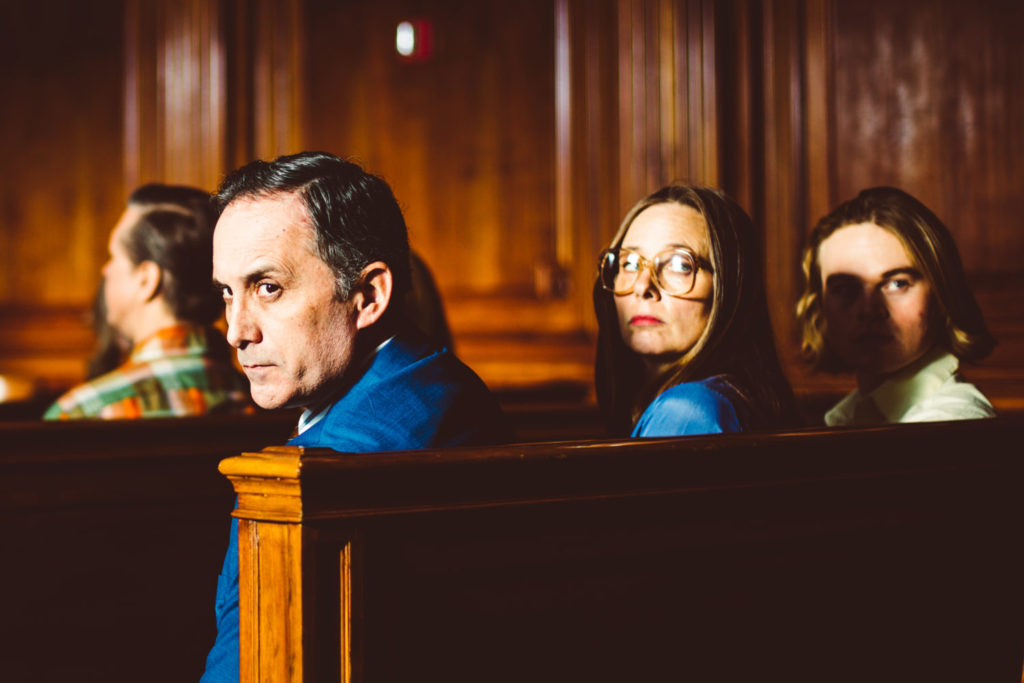
A WILDERNESS OF ERROR (Alessandro Santoro FX/Blumhouse)
A Wilderness of Error (documentary series) / FX for Hulu
Based on iconic documentarian Errol Morris’ 2012 book about the 1970 case against Jeffrey MacDonald (an Army physician convicted of brutally murdering his family), FX’s A Wilderness of Error isn’t your typical true crime doc. Director Marc Smerling not only painstakingly deconstructs every facet of the case in hopes of showing that MacDonald never received a fair trial, but also immerses the audience in a stylized, noirish experience – a cinematic bravura created by Errol Morris himself with films like The Fog of War and The Thin Blue Line.
On the night of February 12, 1970, police arrived at MacDonald’s house in Fort Bragg where they discovered a scene of indescribable horror. MacDonald’s pregnant wife was in the living room, dead from multiple stab wounds, while their two daughters met the same fate in their bedrooms. MacDonald was superficially wounded with a slight puncture to his abdomen. The word “Pig” was written in blood on the wall. MacDonald claimed a few hippies and a woman with a floppy hat broke in and chanted, “Acid is groovy, kill the pigs,” before attacking everyone in the house. It was a scene strangely similar to the Manson murders which occurred only a year prior. MacDonald’s story was suspect from the beginning, and investigators quickly set their sights on him as the main suspect. Although there were accounts of a woman with a floppy hat near the scene, including the woman herself, Helena Stoeckley, claiming she had something to do with the murders, MacDonald was convicted in 1979. To this day, he’s still behind bars, proclaiming his innocence.
This enthralling five-part series is a multi-layered deconstruction of a narrative that seemed set in stone due to the 1982 Joe McGinnis book and TV movie, Fatal Vision, which painted MacDonald as a sociopathic, callous murderer, and led to what many think was a biased trial and conviction. Whether you believe MacDonald or not, A Wilderness of Error doesn’t necessarily convince us of MacDonald’s innocence, as much as reveal the power of reasonable doubt. (C.B.)
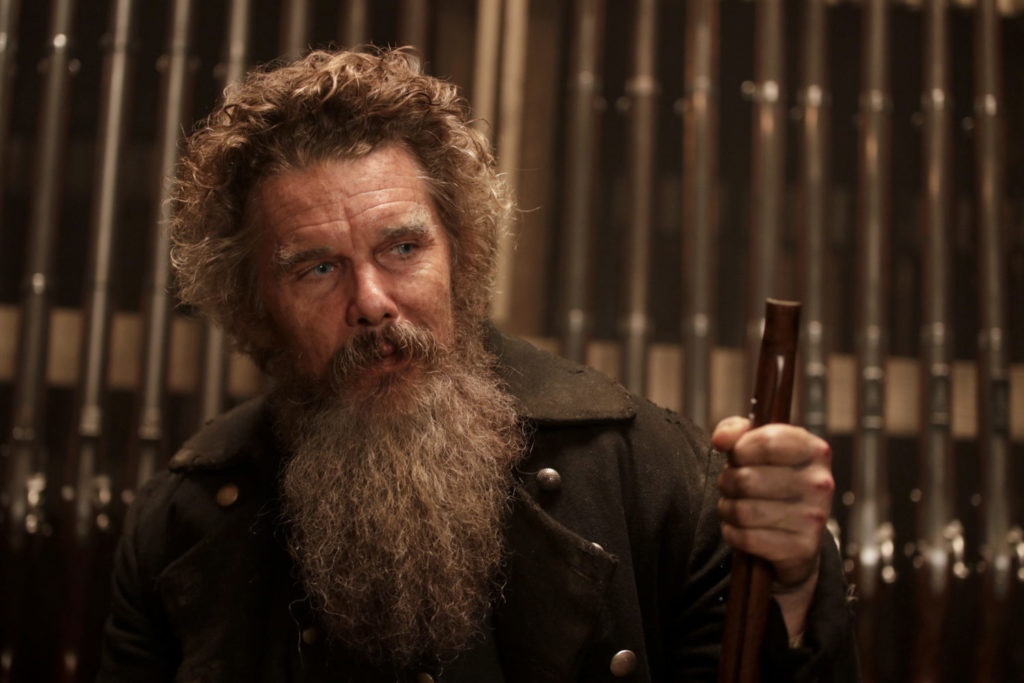
Ethan Hawke in THE GOOD LORD BIRD (William Gray/Showtime)
The Good Lord Bird (series) / Showtime
With fire in his eyes and a beard that would make ZZ Top blush, Ethan Hawke delivers an impassioned and raucous performance as John Brown, the famous fire and brimstone preacher and abolitionist who was determined to singlehandedly take down slavery in Blumhouse Television’s affecting The Good Lord Bird. Hawke’s John Brown is the performance of the decade, but he is surprisingly matched by newcomer Joshua Caleb Johnson. Johnson plays Henry, a young shoe shiner that ends up being swept up in Brown’s band of abolitionist rebels. Brown thinks Henry is a girl, referring to him as Onion, so Henry wears dresses and avoids bathing to just remain in the fold. Based on the 2013 James McBride novel, the story is told through Onion/Henry’s eyes as we watch Brown and his troupe of harried soldiers run rampant through the South, laying waste to slave masters and plantation owners alike. Brown’s aim was to start a civil war, and by God, he kind of did.
You’d think a story about John Brown would be as deadly serious as the headlines in the papers today, but The Good Lord Bird is as satirical as it is poignant. Through this seven-part episodic journey, we meet several historical figures such as Frederick Douglass (a hilarious Daveed Diggs) and Harriet Tubman (Zainab Jah). Brown is portrayed as a mad revolutionary, but also an extreme humanist. His zest for petting animals and quoting scripture is only matched by his bloodlust to kill slave owners and rattle the cage of humanity. Ultimately however, this is Henry’s story. With his wide innocent gaze and perpetually mystified expression, Henry witnesses the indignities of slavery, and soon understands his place in a world that’s gone completely mad. (C.B.)
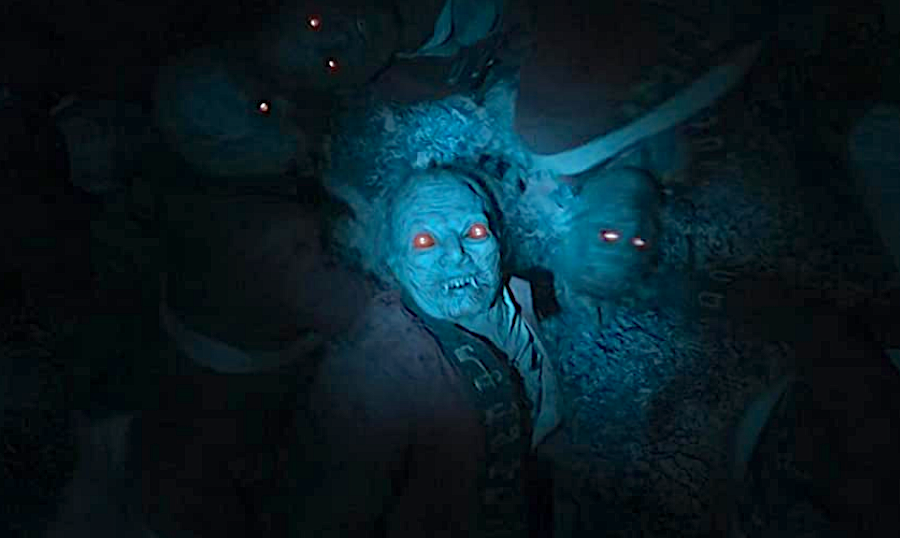
BETAAL (Courtesy Blumhouse/Netflix)
Betaal (series) / Netflix
Set in rural India, Betaal examines themes of corruption and oppression via a zombie invasion in India. Its intentions for depth and meaning notwithstanding, there’s plenty of gore and jump scares to satisfy horror hungry audiences. When an ancient curse is unleashed in a remote village, it leads to a bloody battle between East India’s army and the voracious undead – in this case, colonial-era British zombies. The violent tale incorporates shades of mythology and Indian lore into its obvious political subtext, and given the state of the world at the moment, it is ripe for resonance. It misses the mark a bit in this regard, but with strong female characters and some heart-pounding scenes of monster mashing brutality, this foreign import brings some decent frights. (L.L.)
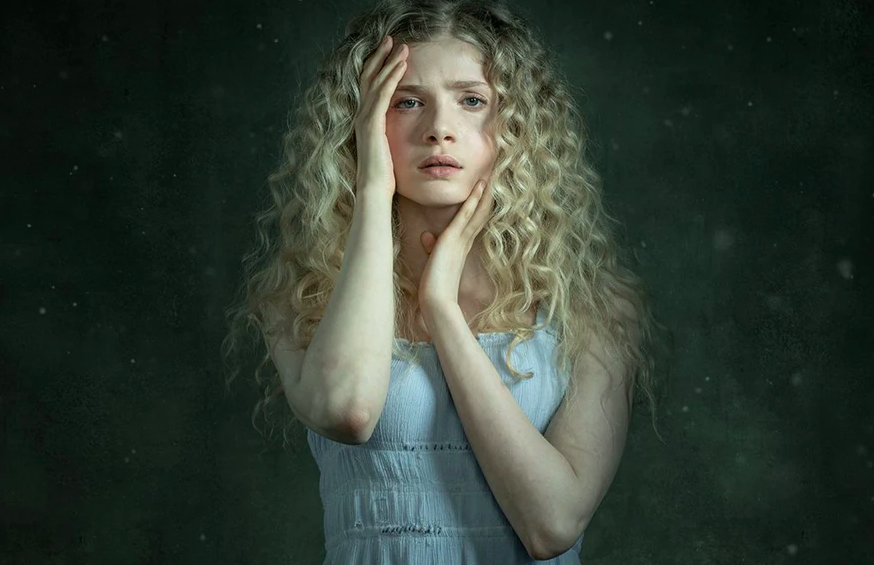
SACRED LIES (Courtesy Blumhouse)
Sacred Lies (series) / Peacock
Snagged from Facebook Watch productions by Peacock, this anthology series based on a “Young Adult” book series (The Sacred Lies of Minnow Bly) and Grimm fairy tales, has found its footing two seasons in as a gloomy teen drama that eschews the cheesiness of similarly angsty and soapier fare like Sabrina and Riverdale. This one plays it straight and somewhat serious, rolling out adventures driven by a handless heroine (Elena Kampouris’ as the mesmerizingly complex Minnow Bly). With a backstory concerning cults, and an artsy point of view that invites the viewer to soak up its sometimes disturbing imagery, this one transcends the shlock of teen television, offering something more character-driven and invitingly capricious. (L.L.)
Advertising disclosure: We may receive compensation for some of the links in our stories. Thank you for supporting Irvine Weekly and our advertisers.

